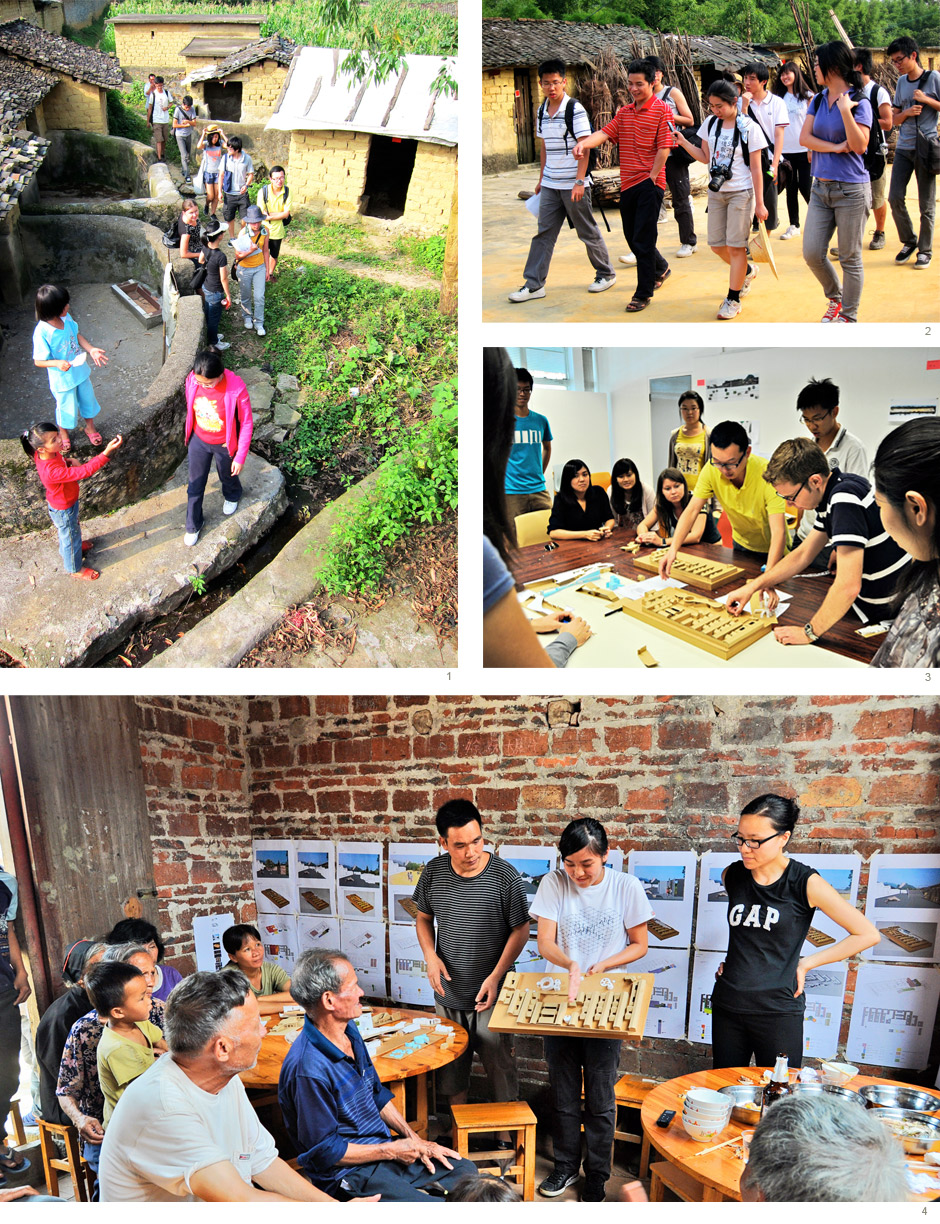“By experiential learning I mean the engagement of architecture students with the community at large. My own research work and projects take place in rural areas of China. I find it invaluable to offer students the opportunity not only to visit these areas but to engage in dialogue, problem solving and design for these communities,” said John Lin, Assistant Professor of the Department of Architecture.
The Faculty of Architecture provides opportunities for students to take part in designing and consultancy services offered by the Faculty to governments and nonprofit organizations. For their Rural Urban Framework projects, for example, students travel to sites in China to work on surveying, drawing and interviewing, research the limitations and opportunities for construction, and develop proposals that address the problems. These ideas are then presented to the village leaders and a local charity to eventually become real building projects.
“The most valuable aspects of this experience are putting my architectural studies to practical use and facing the critique from not only studio tutors but the local residents, all within the framework of the natural surroundings, the existing architectural context and complex social relationships. This fulfills the stated learning objectives, and provides me with a more comprehensive picture of architectural study and architectural practice,” said Henri Su, an Architecture student involved in the activation of village houses in Luk Zuk Village in China.
1 & 2. Students with the Luk Zuk Village project stepped out of the classroom to produce a design and construction proposal by collecting data, identifying local problems and communicating with villagers at the actual site.
3 & 4. After the fieldtrip, students of different disciplines shared their research findings back in the HKU studio and suggested suitable design models. Their designs were then presented to the villagers on-site to obtain direct feedback.

